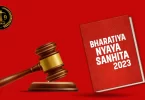Rules A: The State shall not discriminate, either directly or indirectly, on the grounds of sex, race, religion, caste, creed, sexual orientation, marital status, disability, pregnancy, place of birth, gender orientation or any other status
Rule B: Direct discrimination occurs when for a reason related to one or more prohibited grounds a person or group of persons is treated less favourably than another person or another group of persons in a comparable situation.
Rule C: Indirect discrimination occurs when a provision, criterion or practice which is neutral on the face of it would have the effect of putting persons having a status or characteristic associated with one or more prohibited grounds at a particular disadvantage compared with other persons.
Rule D: Discrimination shall be justified when such discrimination is absolutely necessary in order to promote the well-being of disadvantaged groups, such as women, dalits, religious minorities, sexual minorities or disabled persons.
On 2nd October, 2010, the Governor of the State of Bihar ordered the release of all women prisoners who were serving sentence of less than one year imprisonment to mark the occasion of Mahatma Gandhi’s birthday.
Q.1. Which of the following is correct with respect to the Governor’s order?
a. It discriminates directly on the ground of sex
b. It discriminates indirectly on the ground of sex
c. It does not discriminate on the ground of sex
d. It discriminates directly as well as indirectly on the ground of sex.
Answer: a
Q.2. Is the governor’s order justified under Rule D?
a. Yes, because it is for the well-being of women prisoners.
b. No because it is not absolutely necessary for the well-being of women prisoners
c. No, because it does not promote well-being of women prisoners or the society
d. None of the above.
Answer: b
Q.3. Assume that the Governor also made a second order requiring the release of all persons under the age of 25 and over the age of 65 who were serving a sentence of less than one year imprisonment. Under the rules, this order is
a. Directly discriminatory
b. Indirectly discriminatory
c. Not discriminatory
d. Discriminatory, but justifiable.
Answer: c
Q.4. Assume further that the government made a third order, releasing all graduate prisoners who are serving a sentence of less than one-year imprisonment. Which of the following statistics would have to be true for this order to be indirectly discriminatory?
a. Only 13% of the prison population in Bihar have a graduation degree
b. Of the graduate prisoners 89% belong to upper castes
c. Only 25% women in Bihar get a graduation degree
d. All of the above.
Answer: b
Q.5. Two people, one man and the other women, applied for the post in railway. The job required the person to sometimes work in the night shift too. The railway board selected the man applicant for the job based on this reason as women will have trouble working in night. The women applicant challenged it. Will she succeed?
a. Yes, she will succeed as this is discrimination directly based on sex.
b. No, she won’t be successful as the reason that women cannot work at night is fair and reasonable.
c. Yes, she will succeed as women are capable of doing all the work that men can do.
d. Yes, she will succeed because women don’t take no for an answer.
Answer: a





